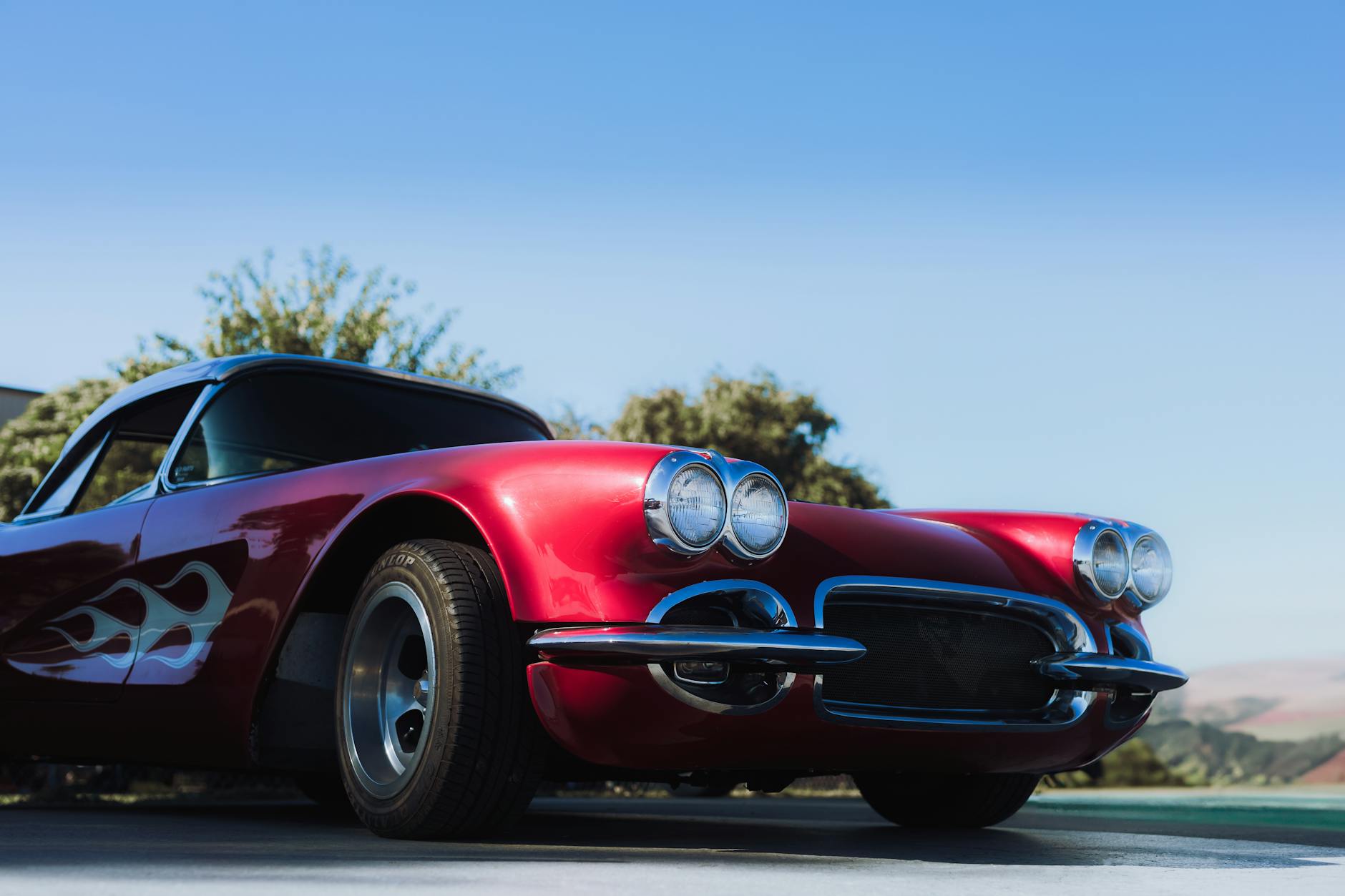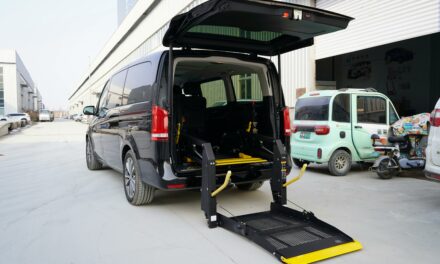Overview of Commercial Motor Insurance
Definition and Scope of Commercial Motor Insurance
Commercial motor insurance is a specialized type of insurance coverage designed to protect businesses that operate vehicles as part of their operations. This type of insurance provides financial protection against various risks associated with owning and operating commercial vehicles, such as trucks, vans, and cars used for business purposes.
The scope of commercial motor insurance typically includes coverage for liability, physical damage to vehicles, and cargo protection. Liability insurance is a fundamental component of commercial motor insurance, providing coverage for bodily injury and property damage that may result from accidents involving the insured vehicles. This coverage helps businesses cover the costs of medical expenses, property repairs, and legal fees associated with such incidents.
In addition to liability insurance, commercial motor insurance also offers physical damage coverage, which protects the insured vehicles against damage from accidents, theft, vandalism, or natural disasters. Businesses can choose between comprehensive coverage, which includes a wide range of risks, and collision coverage, which specifically addresses damages resulting from collisions with other vehicles or objects.
Cargo insurance is another essential aspect of commercial motor insurance, providing protection for the goods and products being transported by the insured vehicles. This coverage helps businesses mitigate the financial losses that may arise from theft, damage, or loss of the transported cargo during transit.
Overall, commercial motor insurance plays a crucial role in helping businesses manage the risks associated with operating a fleet of vehicles. By providing financial protection against accidents, liabilities, and property damage, this type of insurance enables businesses to safeguard their assets, ensure compliance with legal requirements, and maintain business continuity in the face of unforeseen events.
Importance of Commercial Motor Insurance for Businesses
Commercial motor insurance plays a crucial role in safeguarding businesses that rely on vehicles for their operations. The importance of commercial motor insurance for businesses cannot be overstated, as it provides financial protection and peace of mind in the face of potential risks and liabilities associated with operating a fleet of vehicles.
One of the key reasons why commercial motor insurance is vital for businesses is that it helps mitigate the financial impact of accidents and unforeseen events involving company vehicles. In the event of a collision, theft, vandalism, or other covered incidents, the insurance coverage can help cover the costs of vehicle repairs or replacement, medical expenses for injured parties, property damage, and legal fees. Without adequate insurance protection, businesses could face significant financial losses that may jeopardize their operations and profitability.
Moreover, commercial motor insurance is essential for ensuring compliance with legal requirements and regulations governing the use of vehicles for commercial purposes. Most jurisdictions mandate that businesses carry a minimum amount of liability insurance to cover damages resulting from accidents caused by their vehicles. Failing to meet these legal obligations can result in hefty fines, penalties, and even legal action against the business.
Beyond financial protection and legal compliance, commercial motor insurance also plays a crucial role in risk management and business continuity. By having the right insurance coverage in place, businesses can effectively manage risks associated with vehicle operations, mitigate potential liabilities, and ensure continuity of operations in the face of unexpected events. This proactive approach to risk management can help businesses maintain their reputation, customer trust, and competitive edge in the market.
In conclusion, the importance of commercial motor insurance for businesses lies in its ability to provide financial protection, ensure legal compliance, and support risk management efforts. By investing in comprehensive insurance coverage tailored to their specific needs, businesses can safeguard their assets, people, and reputation against the uncertainties of operating a fleet of vehicles. It is essential for businesses to recognize the value of commercial motor insurance as a critical component of their overall risk management strategy and take proactive steps to secure adequate coverage for their operations.
Types of Coverage in Commercial Motor Insurance
Liability Insurance
Coverage for Bodily Injury and Property Damage
Liability insurance is a crucial component of commercial motor insurance, providing coverage for bodily injury and property damage resulting from accidents involving covered vehicles. In the event of a collision where the insured party is at fault, liability insurance helps cover the costs associated with injuries to other individuals or damage to their property.
For bodily injury coverage, liability insurance helps pay for medical expenses, lost wages, and legal fees in case of lawsuits resulting from injuries sustained by third parties in an accident involving the insured vehicle. This type of coverage is essential for businesses that operate commercial vehicles, as it protects against the financial repercussions of bodily harm to others.
Similarly, property damage coverage under liability insurance helps cover the costs of repairing or replacing property that is damaged as a result of an accident involving the insured vehicle. This can include vehicles, buildings, or other structures that are impacted in a collision where the insured party is found liable.
It is important for businesses to carefully consider the limits of liability coverage in their commercial motor insurance policies to ensure adequate protection. Legal requirements for liability insurance can vary by jurisdiction, and it is essential for businesses to comply with these regulations to avoid penalties and legal issues.
Overall, liability insurance is a fundamental aspect of commercial motor insurance, providing businesses with the financial protection needed to navigate the potential liabilities and risks associated with operating commercial vehicles.
Legal Requirements and Limits
In addition to understanding the coverage provided by liability insurance in commercial motor insurance, it is crucial for businesses to be aware of the legal requirements and limits associated with this type of coverage.
Legal requirements for liability insurance vary by jurisdiction, but in general, businesses are mandated to carry a minimum amount of liability insurance to operate commercial vehicles legally. These requirements are put in place to ensure that there is financial protection in case of accidents involving commercial vehicles. Failure to meet these legal requirements can result in fines, penalties, and even the suspension of business operations.
It is essential for businesses to not only meet the minimum legal requirements but also consider the adequacy of their liability insurance coverage. While the minimum limits may be sufficient for some small businesses, larger companies with more assets at risk may need higher coverage limits to adequately protect their interests in the event of a significant accident.
Understanding the legal requirements and limits of liability insurance is crucial for businesses to ensure compliance with regulations and to protect their financial well-being in the face of potential liabilities arising from commercial motor operations. By working closely with insurance providers and legal advisors, businesses can navigate these requirements effectively and make informed decisions regarding their liability insurance coverage.
Physical Damage Insurance

Coverage for Damage to Vehicles
Physical Damage Insurance is a crucial component of Commercial Motor Insurance as it provides coverage for damages to the insured vehicles. This type of coverage protects businesses from financial losses resulting from physical harm to their vehicles, whether due to collisions, theft, vandalism, or natural disasters.
One of the key aspects of Physical Damage Insurance is understanding the difference between comprehensive and collision coverage. Collision coverage specifically protects against damages caused by accidents involving other vehicles or objects. On the other hand, comprehensive coverage extends the protection to damages from non-collision incidents like theft, fire, vandalism, or natural disasters.
Businesses need to evaluate their specific needs and risks to determine the appropriate level of coverage under Physical Damage Insurance. Factors such as the value of the vehicles, the likelihood of accidents or theft, and the overall risk exposure should be considered when selecting the type and extent of coverage.
By investing in Physical Damage Insurance, businesses can safeguard their valuable assets and ensure that they have the financial protection needed to repair or replace their vehicles in case of unforeseen events. This proactive approach not only mitigates financial risks but also helps in maintaining business continuity and operational efficiency.
Comprehensive vs. Collision Coverage
When considering physical damage insurance as part of commercial motor insurance, businesses need to understand the differences between comprehensive and collision coverage.
Collision coverage typically applies to damages resulting from a collision with another vehicle or object. This can include accidents where the business vehicle is at fault or involved in a single-vehicle accident. The insurance will cover the cost of repairing or replacing the vehicle, up to the coverage limit, minus the deductible that the business has chosen.
On the other hand, comprehensive coverage is broader and covers damages to the vehicle that are not related to a collision. This can include theft, vandalism, weather-related damage, or even hitting an animal on the road. Comprehensive coverage provides more extensive protection for the business vehicle but may come with a higher premium compared to collision coverage.
Businesses should carefully evaluate their needs and assess the risks their vehicles face to determine whether comprehensive or collision coverage (or both) is more suitable for their operations. Additionally, considering factors such as the age and value of the vehicles, as well as the potential costs of repairs or replacements, can help in making an informed decision about the types of physical damage insurance coverage to include in their commercial motor insurance policy.
Cargo Insurance
Protection for Transported Goods
Cargo insurance is a crucial component of commercial motor insurance, providing protection for goods being transported by businesses. This type of coverage helps safeguard the value of the cargo against various risks during transit, including theft, damage, or loss. Cargo insurance offers financial protection to businesses in the event of unforeseen circumstances that could result in significant financial losses.
One key aspect of cargo insurance is determining the appropriate coverage options based on the nature of the goods being transported. Different types of cargo may require specific coverage considerations, such as perishable items, hazardous materials, or high-value goods. Understanding the unique characteristics of the cargo is essential in selecting the right coverage to mitigate potential risks effectively.
Businesses can choose from a range of cargo insurance options, including all-risk policies that provide broad coverage for various perils, or specific peril policies that protect against particular risks. Factors such as the mode of transportation, shipping routes, and storage conditions can influence the type of coverage needed for optimal protection of the cargo.
In addition to selecting the appropriate coverage, businesses should also consider the coverage limits and exclusions specified in the insurance policy. It is essential to review the terms and conditions carefully to ensure that the coverage aligns with the specific needs and requirements of the cargo transportation operations.
Overall, cargo insurance plays a critical role in mitigating risks associated with transporting goods and provides businesses with peace of mind knowing that their valuable cargo is protected. By securing the right cargo insurance coverage, businesses can minimize financial losses and disruptions caused by unforeseen events, ultimately supporting smooth and efficient supply chain operations.
Coverage Options and Considerations
Cargo insurance is a critical component of commercial motor insurance, providing protection for the goods being transported by businesses. When considering cargo insurance options, there are several coverage options and considerations that businesses should keep in mind.
One important aspect to consider is the type of goods being transported. Different cargo may have varying levels of risk associated with theft, damage, or spoilage during transit. Therefore, businesses should assess the value and nature of their cargo to determine the appropriate coverage limits needed to adequately protect their assets.
Businesses should also consider the mode of transportation when selecting cargo insurance. Whether goods are transported by truck, ship, rail, or air can impact the risk exposure and coverage requirements. Businesses should work closely with their insurance provider to ensure that the policy covers the specific mode of transportation used in their operations.
Furthermore, businesses should review the coverage options offered by insurance providers. Cargo insurance policies may include coverage for various risks such as theft, damage from accidents, natural disasters, and other unforeseen events. It is essential for businesses to understand the extent of coverage provided and any exclusions that may apply to avoid gaps in protection.
In addition to coverage options, businesses should consider the cost of cargo insurance premiums. The premium rates for cargo insurance can vary based on factors such as the value of the goods, transportation route, security measures in place, and past claims history. Businesses should compare quotes from different insurers to find a policy that offers adequate coverage at a competitive price.
Overall, selecting the right cargo insurance coverage is crucial for businesses that rely on transporting goods as part of their operations. By assessing their cargo insurance needs, understanding coverage options, and working with reputable insurers, businesses can mitigate risks and ensure the protection of their valuable cargo during transit.
Factors Affecting Commercial Motor Insurance Premiums
Vehicle Type and Usage

The type of vehicle and its usage are crucial factors that affect commercial motor insurance premiums. Insurers consider the characteristics of the vehicle being insured and how it will be used when determining the cost of coverage.
-
Vehicle Type:
Different types of vehicles present varying levels of risk to insurers. For example, a large commercial truck carrying heavy cargo may have a higher premium than a smaller delivery van due to the potential for more severe accidents and damages. The make, model, age, and value of the vehicle all play a role in determining the premium. -
Vehicle Usage:
How the vehicle will be used also impacts insurance premiums. Vehicles used for long-haul transportation or in high-traffic urban areas may face higher risks of accidents or theft, leading to higher premiums. Insurers assess the frequency of vehicle use, the primary routes traveled, and whether the vehicle is used for commercial purposes only or for personal use as well.
By understanding how vehicle type and usage influence insurance costs, businesses can make informed decisions when selecting coverage for their commercial vehicles. It is essential to provide accurate information about the vehicles and their intended use to insurers to ensure adequate coverage and pricing that aligns with the specific risk profile of the business operations.
Driver’s Record and Experience
Driver’s record and experience are significant factors that affect commercial motor insurance premiums. Insurance companies assess a driver’s history to determine the level of risk they pose when insuring a vehicle. A driver with a clean record and extensive experience is generally considered less risky, thus qualifying for lower insurance premiums.
Insurers typically look at various aspects of a driver’s record, including traffic violations, accidents, and any previous insurance claims. A history of speeding tickets, DUI convictions, or at-fault accidents can indicate a higher likelihood of future incidents, leading to increased premiums. On the other hand, a driver with a long history of safe driving and no prior claims is likely to be eligible for lower insurance rates.
In addition to the driver’s record, their experience level also plays a crucial role in determining premiums. Experienced drivers who have been behind the wheel for many years are often viewed as more skilled and less prone to accidents compared to novice drivers. As a result, insurance companies may offer more competitive rates to drivers with a proven track record of safe driving practices.
Business owners should encourage safe driving habits among their employees to help maintain a positive driver record and minimize insurance costs. Providing regular training, promoting defensive driving techniques, and emphasizing the importance of adhering to traffic laws can all contribute to safer roads, fewer accidents, and ultimately lower insurance premiums for commercial vehicles.
By paying attention to driver records and experience levels, businesses can proactively manage their insurance costs while promoting a culture of safety and responsibility on the road. Insurers reward good driving behavior with lower premiums, making it a win-win situation for both businesses and their drivers.
Location and Operating Area
Location and operating area play a significant role in determining commercial motor insurance premiums. Insurers consider the geographical location where vehicles operate to assess the level of risk involved. Urban areas with heavy traffic congestion, higher crime rates, and greater chances of accidents may result in higher premiums compared to rural areas with lower traffic density and a lower incidence of claims.
The operating area also influences insurance costs. Vehicles that operate locally within a specific region or state may have different premium rates compared to those involved in interstate or long-haul operations. Insurers take into account the distance traveled, routes taken, and frequency of travel to assess the exposure to risk.
Additionally, the location of the business’s headquarters or where vehicles are primarily garaged can impact insurance premiums. Areas prone to natural disasters, severe weather conditions, or high theft rates may lead to increased insurance costs due to the elevated risks associated with these locations.
Business owners should provide accurate information regarding the location and operating area to insurers to ensure proper coverage and premium calculations. Implementing risk management strategies specific to the operating environment can help mitigate potential risks and possibly lower insurance premiums.
Claims History and Loss Ratios
Claims history and loss ratios play a significant role in determining commercial motor insurance premiums for businesses. Insurance companies assess an organization’s past claims to gauge the level of risk associated with insuring them. A favorable claims history, characterized by few or no claims, indicates that the business is a lower risk to insure, resulting in lower premiums. Conversely, a poor claims history with frequent or high-value claims can lead to higher premiums as insurers view the business as a higher risk.
Loss ratios, which compare the total incurred losses to the total premiums earned, provide insurers with insights into the financial performance of a particular policy or group of policies. A high loss ratio indicates that the insurer is paying out more in claims than it is receiving in premiums, potentially leading to adjustments in premiums for that policy or group of policies. Insurers use loss ratios to ensure they are pricing their policies adequately to cover potential claims while maintaining profitability.
Businesses can proactively manage their claims history and loss ratios by implementing robust risk management practices, prioritizing safety measures, and providing ongoing training to drivers. By emphasizing accident prevention and promptly addressing any incidents that do occur, businesses can demonstrate to insurers that they are committed to minimizing risks and controlling losses, which may help in negotiating more favorable insurance premiums.
In summary, claims history and loss ratios are key factors that influence commercial motor insurance premiums. By maintaining a positive claims history, implementing effective risk management strategies, and prioritizing safety, businesses can work towards reducing their insurance costs and ensuring adequate coverage for their commercial vehicles.
Benefits of Commercial Motor Insurance for Businesses
Financial Protection against Accidents and Liabilities
Commercial motor insurance provides businesses with crucial financial protection against accidents and liabilities. In the event of a collision or damage to vehicles, having the right insurance coverage can help mitigate the financial impact on a business. By paying a premium, businesses transfer the risk of potential costly accidents to the insurance provider, ensuring that they are not solely responsible for covering the expenses associated with vehicle repairs, medical bills, or legal fees.
Moreover, commercial motor insurance offers businesses peace of mind knowing that they have a safety net in place to handle unforeseen circumstances. Whether it’s a minor fender bender or a major accident resulting in extensive damage, having insurance coverage can prevent significant financial strain on a business. This financial protection allows companies to focus on their core operations without the added worry of dealing with the aftermath of an accident.
Additionally, commercial motor insurance helps businesses comply with legal requirements and regulations. Most jurisdictions mandate that businesses have a minimum level of liability insurance to operate commercial vehicles legally. By securing the necessary insurance coverage, businesses can avoid potential fines, penalties, or even legal action for non-compliance. This not only protects the business from financial losses but also safeguards its reputation and credibility within the industry.
Furthermore, commercial motor insurance plays a crucial role in risk management and business continuity. By having the right insurance coverage in place, businesses can proactively manage risks associated with operating a fleet of vehicles. In the event of an accident, insurance coverage can help expedite the claims process, minimize disruptions to business operations, and facilitate a quick recovery. This proactive approach to risk management ensures that businesses can maintain continuity and resilience, even in the face of unexpected challenges.
In conclusion, the benefits of commercial motor insurance for businesses are multifaceted, providing financial protection, legal compliance, and risk management support. By investing in the right insurance coverage, businesses can safeguard their assets, employees, and reputation, ensuring long-term sustainability and success.

Compliance with Legal Requirements and Regulations
Commercial motor insurance provides businesses with more than just financial protection. It also ensures compliance with legal requirements and regulations. In most jurisdictions, commercial motor insurance is mandatory for businesses operating vehicles as part of their operations. By having the necessary insurance coverage in place, businesses can avoid potential legal issues and penalties.
Compliance with legal requirements is essential for businesses to operate legally and ethically. Commercial motor insurance helps businesses fulfill their legal obligations by providing the required coverage for vehicles, drivers, and cargo. Without proper insurance, businesses may face fines, license suspensions, or even legal action. By investing in commercial motor insurance, businesses can demonstrate their commitment to following regulations and protecting their employees, customers, and the public.
Additionally, having the right insurance coverage can help businesses navigate complex regulatory landscapes more effectively. Insurance policies often include provisions that address specific legal requirements, such as minimum liability coverage limits or coverage for certain types of vehicles. By working with experienced insurance providers, businesses can ensure that their policies meet all relevant legal standards, giving them peace of mind and reducing the risk of compliance issues.
Overall, compliance with legal requirements and regulations is a key benefit of commercial motor insurance for businesses. By securing the necessary coverage, businesses can protect themselves from legal and financial risks while demonstrating their commitment to operating responsibly within the law.
Risk Management and Business Continuity
Commercial motor insurance plays a crucial role in supporting risk management and ensuring business continuity for companies that rely on vehicles for their operations. By having comprehensive insurance coverage in place, businesses can better protect their assets, employees, and overall operations in the event of unexpected incidents.
One key benefit of commercial motor insurance for businesses is the ability to mitigate financial risks associated with accidents and liabilities. In the event of a collision or damage to vehicles, insurance coverage can help offset repair or replacement costs, minimizing the financial impact on the business. Additionally, liability insurance can provide protection in case of bodily injury or property damage to third parties, helping to cover legal expenses and potential settlements.
Moreover, commercial motor insurance enables businesses to comply with legal requirements and regulations related to vehicle operation. Maintaining insurance coverage that meets or exceeds state and federal mandates is essential for avoiding fines, penalties, or potential legal action. By staying compliant, businesses can operate with confidence and avoid disruptions to their operations due to regulatory issues.
Furthermore, having commercial motor insurance is a key component of effective risk management practices for businesses. By transferring the financial risks associated with vehicle operation to an insurance provider, companies can better protect their balance sheets and maintain financial stability. Insurance coverage can also help businesses manage risks related to vehicle breakdowns, theft, vandalism, and other unforeseen events that could impact operations.
In essence, commercial motor insurance plays a critical role in enhancing business continuity by providing financial protection, ensuring regulatory compliance, and supporting risk management efforts. By investing in comprehensive insurance coverage tailored to their specific needs, businesses can safeguard their assets, employees, and overall operations, ultimately fostering long-term success and sustainability.
Challenges and Considerations in Commercial Motor Insurance
Rising Premiums and Cost Factors
Commercial motor insurance faces several challenges and considerations that impact premiums and cost factors. One significant challenge is the trend of rising premiums across the industry. Insurers often increase premiums in response to various factors, such as an increase in claims frequency or severity, changes in regulations, or economic conditions. Businesses need to be prepared for potential premium hikes and budget accordingly to avoid financial strain.
Cost factors play a crucial role in determining commercial motor insurance premiums. Insurers consider multiple variables when calculating premiums, including the type of vehicles insured, the driving history of employees, the location of operations, and the nature of the cargo being transported. Businesses must understand how these factors influence premium costs and take proactive measures to mitigate risks and minimize expenses.
Policy exclusions and limitations can also impact the overall cost of commercial motor insurance. Businesses need to carefully review their insurance policies to understand what is covered and what is excluded. It is essential to be aware of any restrictions or limitations in coverage to avoid unexpected costs in the event of a claim.
Moreover, industry-specific risks and coverage needs present unique challenges for businesses seeking commercial motor insurance. Different industries have varying levels of risk exposure, and insurers may adjust premiums based on these factors. Businesses operating in high-risk industries, such as hazardous materials transportation or long-haul trucking, may face higher insurance costs due to the increased likelihood of accidents or incidents.
Navigating the challenges and considerations related to rising premiums and cost factors in commercial motor insurance requires a strategic approach. Businesses should work closely with insurers to assess their coverage needs, implement risk management strategies, and explore cost-effective insurance options. By staying informed and proactive, businesses can effectively manage the financial implications of rising premiums and ensure adequate protection for their commercial vehicles and operations.
Policy Exclusions and Limitations
Policy exclusions and limitations are important aspects of commercial motor insurance that businesses need to thoroughly understand. These provisions outline specific scenarios or conditions under which coverage may not be provided, or where coverage may be limited. It is essential for businesses to be aware of these exclusions and limitations to avoid any surprises or gaps in coverage when filing a claim.
Common policy exclusions in commercial motor insurance may include intentional acts, racing or illegal activities, wear and tear, and unapproved vehicle modifications. It is crucial for businesses to understand these exclusions and take necessary precautions to prevent any situations that could lead to denied claims.
Additionally, policy limitations can impact the extent of coverage provided by the insurance policy. These limitations could include restrictions on coverage amounts for specific incidents, such as limits on coverage for certain types of cargo or for vehicles operating in high-risk areas. Understanding these limitations can help businesses make informed decisions about their insurance coverage needs and potential risks.
Businesses should carefully review their insurance policies with their insurance providers to clarify any ambiguities regarding exclusions and limitations. By being aware of these factors, businesses can better prepare for potential scenarios that may not be covered by their commercial motor insurance policies, and take proactive steps to mitigate risks and ensure adequate coverage for their operations.
Industry-Specific Risks and Coverage Needs
When it comes to commercial motor insurance, businesses need to be aware of industry-specific risks and coverage needs that may impact their insurance policies. Different industries face unique challenges and exposures when it comes to operating commercial vehicles, making it crucial to tailor insurance coverage accordingly.
-
Transportation and Logistics: Companies in the transportation and logistics industry face risks related to the movement of goods, timely deliveries, and potential cargo theft. Cargo insurance is particularly important for these businesses to protect the value of the goods being transported.
-
Construction and Contracting: Construction companies often have specialized vehicles and equipment that need coverage beyond standard auto insurance. In addition to liability and physical damage coverage, these businesses may require coverage for specialized equipment and tools being transported to and from job sites.
-
Food and Beverage Industry: Businesses in the food and beverage industry may transport perishable goods that require special handling and storage conditions. Temperature-controlled cargo insurance can help protect against financial losses in case of spoilage or contamination during transit.
-
Retail and E-Commerce: Retailers and e-commerce businesses rely heavily on the transportation of goods to fulfill customer orders. In addition to cargo insurance, these companies may need coverage for delivery vehicles, inventory in transit, and potential risks associated with last-mile deliveries.
-
Service Industries: Businesses in the service industry, such as contractors, consultants, and home service providers, may use commercial vehicles to travel to client locations. Liability insurance is crucial for these businesses to protect against claims of property damage or bodily injury while on the job.
-
Manufacturing Sector: Manufacturers often have large fleets of vehicles used for transporting raw materials, components, and finished products. Comprehensive coverage that includes protection for vehicles, cargo, and liability is essential to mitigate the risks inherent in the manufacturing supply chain.
Understanding the specific risks associated with each industry sector is key to ensuring that businesses have adequate commercial motor insurance coverage. By working with an insurance provider that specializes in serving the needs of your industry, businesses can tailor their policies to address unique risks and protect their assets effectively.
Emerging Trends in Commercial Motor Insurance
Telematics and Usage-Based Insurance
Telematics and usage-based insurance are revolutionizing the commercial motor insurance industry, offering innovative ways for businesses to monitor and manage their fleets more effectively. Telematics involves the use of technology to track and collect data on vehicles, providing valuable insights into driver behavior, vehicle performance, and overall fleet efficiency.
Usage-based insurance, a type of telematics insurance, determines premiums based on actual vehicle usage and driving habits rather than general statistics. This personalized approach to pricing can lead to more accurate risk assessment and potentially lower insurance costs for businesses with safe driving practices.
By incorporating telematics systems into their vehicles, businesses can benefit from real-time monitoring of factors such as speed, acceleration, braking, and location. This data not only helps in improving driver safety and reducing the risk of accidents but also enables businesses to optimize routes, enhance fuel efficiency, and schedule maintenance proactively.
Furthermore, telematics can play a crucial role in claims management by providing accurate information about the circumstances of an accident, facilitating quicker claims processing and resolution. Insurers can also leverage telematics data to offer customized risk mitigation solutions and preventive maintenance recommendations to their policyholders.
As technology continues to evolve, the integration of telematics and usage-based insurance is expected to become more prevalent in the commercial motor insurance sector. Businesses that embrace these emerging trends can gain a competitive edge by enhancing operational efficiency, reducing insurance premiums, and mitigating risks effectively.
Technology Integration for Fleet Management
Technology integration for fleet management is a key emerging trend in commercial motor insurance. With advancements in telematics, GPS tracking, and data analytics, businesses can now monitor and manage their fleet operations more efficiently and effectively.
By incorporating technology into their fleet management practices, businesses can track vehicle usage, monitor driver behavior, and optimize routes to improve fuel efficiency and reduce operating costs. This data-driven approach not only benefits the business in terms of cost savings but also enhances overall safety and risk management.
Moreover, technology integration allows insurers to offer usage-based insurance policies, where premiums are based on actual vehicle usage and driver behavior rather than general industry statistics. This personalized approach to pricing can result in more accurate premiums, incentivizing safe driving practices and reducing the overall risk for both the insurer and the insured business.
As technology continues to advance, we can expect to see further innovations in commercial motor insurance, such as predictive maintenance tools, automated claims processing, and real-time risk assessment solutions. Businesses that embrace these technological advancements will not only streamline their fleet management processes but also ensure they are well-positioned to adapt to the evolving landscape of commercial motor insurance.
Sustainable and Eco-Friendly Coverage Options
Sustainable and eco-friendly coverage options are emerging as a significant trend in the commercial motor insurance industry. Businesses are increasingly focusing on reducing their carbon footprint and adopting environmentally friendly practices, including in their vehicle fleets. As a result, insurance providers are offering specialized coverage options to support these initiatives.
One of the key aspects of sustainable coverage options is incentivizing businesses to use eco-friendly vehicles. Insurers may provide discounts or specialized policies for companies that use electric or hybrid vehicles in their commercial operations. These vehicles have lower emissions and are considered more environmentally friendly compared to traditional gasoline or diesel vehicles.
Additionally, some insurance providers are offering coverage options that specifically cater to businesses with green practices. This may include coverage for investments in renewable energy sources, such as solar-powered vehicles or charging stations. By encouraging and supporting sustainable initiatives, insurers are aligning themselves with the broader societal shift towards environmental responsibility.
Moreover, sustainable coverage options may also include rewards for businesses that implement eco-friendly driving practices. This can be achieved through telematics devices that monitor and reward drivers for fuel-efficient driving behaviors. By promoting responsible driving habits, insurers can help businesses reduce their environmental impact while also improving safety and reducing insurance risks.
Overall, sustainable and eco-friendly coverage options in commercial motor insurance not only benefit the environment but also align with the risk management goals of businesses. By choosing insurers that offer these options, companies can demonstrate their commitment to sustainability, reduce operational costs through improved efficiency, and contribute to a greener future for all.
Best Practices for Businesses in Choosing Commercial Motor Insurance
Assessing Coverage Needs and Risks
Assessing Coverage Needs and Risks
When it comes to choosing the right commercial motor insurance for your business, a crucial step is assessing your coverage needs and risks. Understanding the specific requirements of your operations and the potential risks involved will help you select the most suitable insurance policy. Here are some key factors to consider in this assessment:
-
Nature of Business Operations:
- Evaluate the nature of your business activities, including the types of vehicles used, their purpose, and the goods or passengers transported. This will help determine the level of coverage required for your specific operations.
-
Regulatory Requirements:
- Familiarize yourself with the legal requirements for commercial motor insurance in your area. Ensure that your policy meets or exceeds the minimum coverage mandated by law to avoid penalties or fines.
-
Risk Exposure:
- Identify the potential risks associated with your business, such as accident-prone routes, high traffic areas, or specific cargo vulnerabilities. Assessing these risks will enable you to tailor your insurance coverage to mitigate these exposures.
-
Fleet Size and Composition:
- Consider the size and composition of your vehicle fleet when assessing coverage needs. Larger fleets may require additional coverage options, while the types of vehicles (e.g., trucks, vans, passenger vehicles) will impact the insurance requirements.
-
Business Interruption Risks:
- Evaluate the potential impact of vehicle downtime or accidents on your business operations. Assess how quickly you would need to replace or repair vehicles to minimize disruptions and incorporate this into your coverage assessment.
-
Financial Considerations:
- Determine the financial implications of various coverage options, deductibles, and policy limits. Strike a balance between adequate coverage and cost-effectiveness to ensure that you are not over or underinsured.
-
Future Growth and Expansion:
- Anticipate any potential changes in your business, such as fleet expansion or diversification of operations. Choose a flexible insurance policy that can adapt to your evolving needs and growth plans.
By conducting a thorough assessment of your coverage needs and risks, you can make informed decisions when selecting commercial motor insurance for your business. Remember to review and update your insurance policy regularly to ensure ongoing protection that aligns with your changing requirements and risk profile.
Comparing Quotes and Policy Features
When it comes to choosing commercial motor insurance, businesses must carefully compare quotes and policy features to make an informed decision. This process involves more than just looking at the premium cost; it requires a comprehensive evaluation of the coverage provided and the terms and conditions of the policy.
One of the key factors to consider when comparing quotes is the scope of coverage offered by different insurers. Businesses should assess whether the policy includes the necessary protections for their specific needs, such as liability coverage, physical damage coverage, and cargo insurance. Understanding the extent of coverage and any exclusions is crucial to avoiding gaps in protection.
In addition to coverage, businesses should also compare the limits and deductibles offered by different insurers. While opting for lower limits and higher deductibles may reduce premium costs, it could leave the business vulnerable in the event of a claim. It is essential to strike a balance between affordability and sufficient coverage to mitigate risks effectively.
Moreover, businesses should pay attention to the policy features and additional services provided by insurers. Some insurers may offer value-added services such as roadside assistance, towing coverage, or fleet management tools, which can be beneficial for businesses with commercial vehicles. Evaluating these extras can help businesses choose a policy that not only meets their insurance needs but also provides added convenience and support.
Lastly, when comparing quotes and policy features, it is advisable for businesses to seek input from insurance brokers or agents who specialize in commercial motor insurance. These professionals can offer expert guidance on selecting the right policy based on the business’s operations, risk profile, and budget. By leveraging their knowledge and expertise, businesses can make a well-informed decision and secure adequate insurance coverage for their commercial vehicles.
Evaluating Insurers’ Reputation and Customer Service
When selecting commercial motor insurance, one crucial aspect that businesses should consider is evaluating insurers’ reputation and customer service. A reputable insurance provider with excellent customer service can make a significant difference in the overall experience of obtaining and maintaining insurance coverage.
Business owners should research and assess the reputation of insurance companies before making a decision. This can involve reviewing online customer feedback, ratings, and reviews on independent websites or seeking recommendations from other businesses in the industry. A positive reputation indicates reliability, financial stability, and a track record of fulfilling claims promptly and efficiently.
Customer service is another essential factor to consider when choosing a commercial motor insurance provider. Businesses should assess the responsiveness, professionalism, and helpfulness of the insurer’s customer service team. In the event of an accident or claim, prompt and supportive customer service can streamline the process and alleviate stress for the business owner.
Furthermore, businesses should consider the accessibility of the insurance provider’s customer service channels, such as phone support, email communication, online portals, and mobile apps. A seamless and user-friendly customer service experience can enhance the overall satisfaction with the insurance provider.
In addition to evaluating insurers’ reputation and customer service, businesses should also consider the insurer’s claims process, coverage options, premiums, and policy features when making a decision. By prioritizing these factors and conducting thorough research, businesses can choose a commercial motor insurance provider that not only meets their coverage needs but also provides reliable support and service throughout the insurance relationship.
Conclusion
Recap of the Importance and Types of Commercial Motor Insurance
In conclusion, commercial motor insurance plays a vital role in protecting businesses that rely on vehicles for their operations. The different types of coverage, including liability insurance, physical damage insurance, and cargo insurance, offer a comprehensive shield against financial losses arising from accidents, property damage, and cargo-related incidents.
Businesses must prioritize obtaining commercial motor insurance not only to comply with legal requirements but also to safeguard their financial stability. By managing risks effectively through the right insurance coverage, companies can ensure business continuity even in the face of unforeseen events.
Looking ahead, the commercial motor insurance industry is witnessing emerging trends such as telematics, technology integration for fleet management, and sustainable coverage options. These innovations are set to revolutionize how businesses approach insurance for their commercial vehicles, offering more tailored and efficient solutions.
In navigating the complex landscape of commercial motor insurance, businesses are advised to assess their coverage needs, compare quotes, and evaluate insurers based on reputation and customer service. By following best practices in choosing the right insurance policy, businesses can mitigate risks effectively and ensure they have the necessary protection in place.
Overall, commercial motor insurance is a critical component of risk management for businesses with a fleet of vehicles. By understanding the importance of this insurance and selecting the appropriate coverage for their specific needs, businesses can secure their operations and drive towards long-term success in the competitive commercial landscape.

Key Considerations for Businesses in Managing Risks and Ensuring Adequate Coverage
Key Considerations for Businesses in Managing Risks and Ensuring Adequate Coverage
In conclusion, businesses must carefully consider several key factors when managing risks and ensuring they have adequate commercial motor insurance coverage. First and foremost, businesses should conduct a thorough assessment of their coverage needs based on the nature of their operations, the types of vehicles they use, and the goods they transport. By understanding their specific risks and potential liabilities, businesses can tailor their insurance policies to provide comprehensive protection.
Furthermore, when selecting an insurance provider, businesses should not only focus on the cost of the premiums but also consider the insurer’s reputation, financial stability, and customer service. A reliable insurer with a track record of efficient claims processing and support can make a significant difference in times of need.
Regularly reviewing and updating insurance policies is another crucial consideration for businesses. As operations evolve, new vehicles are added to the fleet, or regulations change, insurance coverage should be adjusted accordingly to ensure that it remains relevant and effective.
Moreover, businesses should actively engage in risk management practices to reduce the likelihood of accidents and claims. Implementing safety training programs for drivers, maintaining vehicles in good condition, and adhering to regulatory requirements can help mitigate risks and potentially lower insurance premiums.
By paying attention to these key considerations, businesses can effectively manage risks associated with commercial motor operations and safeguard their financial stability. Adequate commercial motor insurance coverage not only offers protection against unforeseen events but also contributes to the overall resilience and continuity of business operations.
Future Outlook and Trends in the Commercial Motor Insurance Industry
Looking ahead, the commercial motor insurance industry is poised for significant evolution as technology continues to drive change and innovation. One key trend that is expected to shape the future of commercial motor insurance is the increasing adoption of telematics and usage-based insurance. These technologies allow insurers to gather real-time data on vehicle usage, driver behavior, and road conditions, enabling more personalized and dynamic pricing models.
Another important aspect of the future outlook for commercial motor insurance is the continued integration of technology for fleet management. Advanced systems for tracking and monitoring vehicles can help businesses improve safety, efficiency, and compliance with regulations. Insurers are likely to offer more tailored products and services that leverage data analytics and automation to enhance risk assessment and claims processes.
Furthermore, there is a growing emphasis on sustainable and eco-friendly coverage options in response to environmental concerns and regulatory pressures. Insurers may develop specialized insurance products that incentivize businesses to adopt greener practices and invest in alternative fuel vehicles.
In conclusion, the commercial motor insurance industry is on a trajectory of transformation driven by technological advancements, changing customer expectations, and evolving regulatory landscapes. Businesses that stay informed about emerging trends and best practices will be better equipped to navigate the complexities of commercial motor insurance, manage risks effectively, and ensure adequate coverage for their operations.








